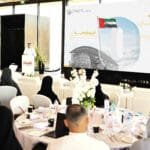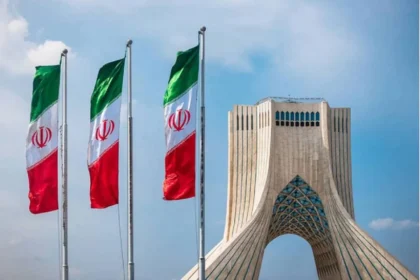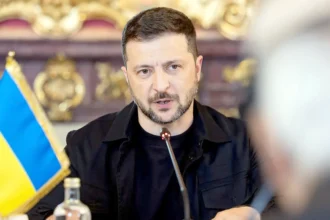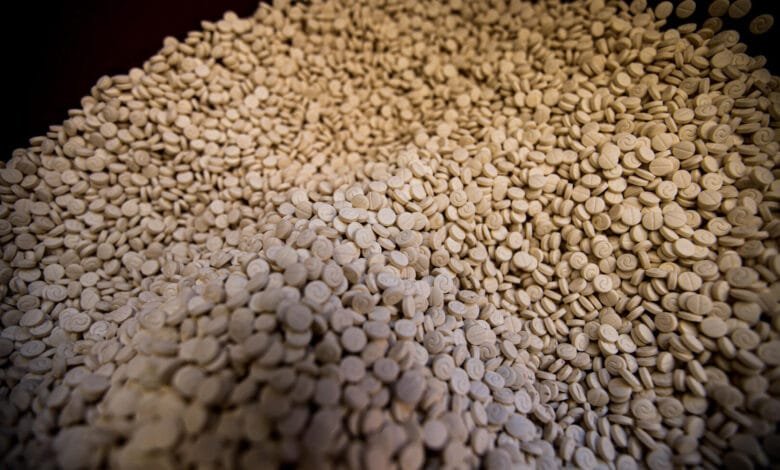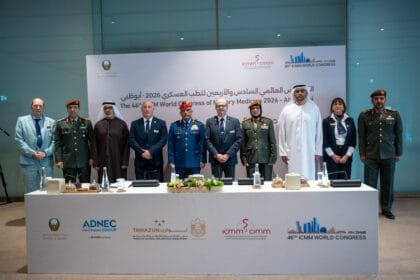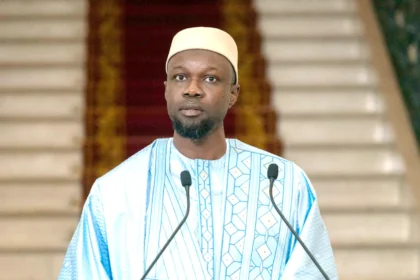Geneva, Switzerland: The DIHAD Sustainable Organisation participated in the 2025 H20 Summit, held in Geneva from 19 to 20 June, co-hosted by the World Health Organization (WHO) and organised by the G20 and G7 Health and Development Partnership. On the sidelines of the Summit, the Organisation signed a strategic Memorandum of Understanding aimed at advancing international cooperation in the humanitarian, health, and education sectors.
The Summit, held under the theme “Reimagining Partnerships & Building Back Public Trust in Global Health,” aimed to explore ways to develop more resilient, inclusive, and innovative health systems through dialogue that brought together senior policymakers, health sector leaders, and development experts worldwide.
Representing the DIHAD Sustainable Organisation at the Summit were H.E. Amb. Dr. Abdulsalam AlMadani, Chairman of DIHAD Sustainable Organisation and Chairman of DISAB; Roving Ambassador of the Parliamentary Assembly of the Mediterranean (PAM) for the GCC Region; and Eng. Khaled Al Attar, Director General of DIHAD Sustainable Organisation.
During his participation as a speaker in the high-level roundtable, H.E. Amb. Dr. Abdulsalam AlMadani emphasised the critical role of parliamentary diplomacy in restoring community trust, enhancing accountability, and translating global commitments into concrete national actions. He highlighted the importance of legislative dialogue and cross-border cooperation, especially in crisis-affected regions.
Eng. Khaled Al Attar contributed to the Summit’s closing session on Day One, calling for a shift from fragmented efforts to unified, impact-driven strategies. He underscored the importance of developing integrated ecosystems that address the root causes of health disparities and strengthen the link between humanitarian response, sustainable development, and innovation.
The Summit explored strategies to secure the role of health and development in the next cycle of G20 meetings starting in 2026, under the leadership of the United States. It also examined the current state of global health financing and underscored why public-private partnerships are essential for future progress. The H20 Summit stands out as an inclusive and collaborative platform where the traditional global health community intersects with decision-makers from politics and finance, aimed at elevating public health within the G20’s broader development agenda. Insights and recommendations from the two-day deliberations will contribute to both the upcoming UN General Assembly’s fourth high-level meeting on Non-Communicable Diseases (NCDs) in September and the G20 Health Ministers and Leaders’ Summit in South Africa this November.
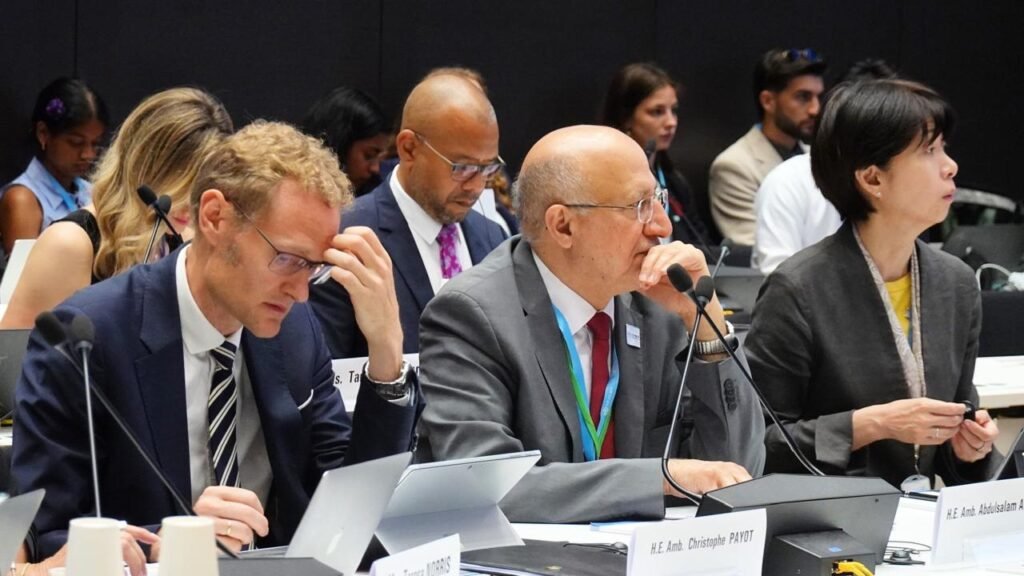
H.E. Dr. Tedros Adhanom Ghebreyesus, Director-General of the World Health Organization (WHO), stated: “WHO thanks the H20 for its advocacy at this critical time in global health. Severe disruptions to funding and changing disease burdens require new partnerships and approaches, including an increased focus on promoting health and preventing disease. WHO is working with all health and development partners, and supporting the G20, to help countries pivot from aid dependency to greater self-reliance in mobilizing domestic resources to deliver the health services their people need.”
Reflecting on the outcomes of the Summit, H.E. Amb. Dr. Abdulsalam AlMadani, Chairman of DIHAD Sustainable Organisation and Chairman of DISAB, and Roving Ambassador of the Parliamentary Assembly of the Mediterranean (PAM) for the GCC Region, stated: “Addressing today’s global health challenges requires collective responsibility and enhanced cooperation between countries and institutions. Achieving tangible results on the ground requires supporting global frameworks through effective institutional and international dialogue while also prioritizing primary healthcare and advancing healthcare innovation to improve efficiency and reduce costs. Through partnerships, knowledge exchange, and policy empowerment, we can build more resilient, equitable, and sustainable health systems for all.”
On the sidelines of the H20 Summit, DIHAD Sustainable Organisation has signed a Memorandum of Understanding (MoU) with the G20 & G7 Health and Development Partnership, marking a strategic step forward in strengthening cross-sectoral cooperation, in the presence of H.E. Dr. Tedros Adhanom Ghebreyesus, Director-General of the World Health Organization (WHO), H.E. Amb. Dr. Abdulsalam AlMadani, Chairman of DIHAD Sustainable Organisation and Chairman of DISAB; Roving Ambassador of the Parliamentary Assembly of the Mediterranean (PAM) for the GCC Region, and Mr. Alan Donnelly, Executive Chairman of Sovereign Sustainability and Development and Convenor of the G20 Health and Development Partnership.
Signed by Eng. Khaled Al Attar, Director General of DIHAD Sustainable Organisation and Ms. Hatice Beton, Executive Director of G20 & G7 Health and Development Partnership, the MoU outlines a shared commitment to support one another’s humanitarian, health, and educational initiatives, foster collaboration on sustainable development projects, and explore opportunities for joint events and programs in areas of mutual interest. It also includes provisions for exchanging knowledge and expertise and encouraging the participation of personnel and networks from both sides in training and educational initiatives.
Mr. Alan Donnelly, Executive Chairman of Sovereign Sustainability and Development and Convenor of the G20 Health and Development Partnership, stated: “Today’s MOU between G20&G7 Health and Development Partnership and DIHAD Sustainable Organisation will significantly strengthen our efforts to drive global health and sustainable development priorities at a critical time for many countries.”
For his part, Eng. Khaled Al Attar, Director General of DIHAD Sustainable Organisation, emphasized the shared commitment to advancing more resilient and inclusive global health and humanitarian systems. He stated: “This memorandum represents a pivotal step toward unifying efforts across borders to deliver a lasting impact. By aligning our initiatives with like-minded global partners, we aim to accelerate meaningful change in communities most in need, through integrated approaches that bring together humanitarian response, health equity, and sustainable development.” This collaboration marks a key milestone in DIHAD’s mission to advance sustainable humanitarian solutions and reflects its strong commitment to collaborative, impact-driven global health and development efforts. It also aligns with the humanitarian vision of the United Arab Emirates, which continues to champion partnerships that promote human dignity, equitable healthcare access, and sustainable progress, particularly in regions affected by conflict, poverty, and climate-related challenges. Through this alliance, DIHAD reaffirms its role as a catalyst for change and echoes the UAE’s position as a global hub for humanitarian diplomacy and innovation.







